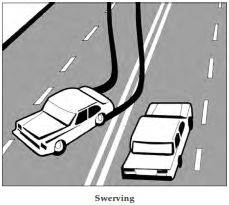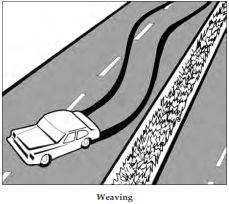There is no defense to a drunk driving charge, right? Wrong! It is legal to drink alcohol and operate a motor vehicle.
A DUI charge is a crime of opinion, i.e. while it is legal to drink and drive, a police officer has formed an opinion that the motorist violated the law by drinking too much. All too often, a person charged with drunk driving believes that there is no defense to a drunk driving charge, so they never bother exploring their options. There are many defenses, however, and it is important for your case to be reviewed by a qualified attorney to determine whether your case could be challenged.
 Invalid Stops: Police officers frequently stop drivers on a pretext because of the time of day. Extreme examples include parking outside bars and checking license plates for drivers with outstanding tickets. Others engage in stops based upon "swerving within the lane," obstructed vision claims, and loud radios or exhausts. The pretext for the stop is designed to justify an investigation, but the initial traffic stop must be legally justified. Although the US Supreme Court has allowed pretextual traffic stops in what has become known as the Whren doctrine, "[I]t is the responsibility of the courts to make sure that police officers act appropriately and not abuse the power legally afforded to them by, among other things, carefully scrutinizing a police officer's testimony as to the purpose of the initial stop." United States v Hill, 195 F3d 258 (6th Cir. 1999).
Invalid Stops: Police officers frequently stop drivers on a pretext because of the time of day. Extreme examples include parking outside bars and checking license plates for drivers with outstanding tickets. Others engage in stops based upon "swerving within the lane," obstructed vision claims, and loud radios or exhausts. The pretext for the stop is designed to justify an investigation, but the initial traffic stop must be legally justified. Although the US Supreme Court has allowed pretextual traffic stops in what has become known as the Whren doctrine, "[I]t is the responsibility of the courts to make sure that police officers act appropriately and not abuse the power legally afforded to them by, among other things, carefully scrutinizing a police officer's testimony as to the purpose of the initial stop." United States v Hill, 195 F3d 258 (6th Cir. 1999).

A police officer must establish "reasonable suspicion" to stop a vehicle, or the officer must actually witness a civil infraction or equipment violation. The officer's justification for the stop is a critical stage of the case that must be properly analyzed.
Video recording equipment exists in many police vehicles. The video tapes that we obtain regarding traffic stops have revealed many times that the police officer's justification for the traffic stop was insufficient. Even when a legally sufficient reason exists for the traffic stop, however, the driving does not always support the officer's conclusion that the motorist was intoxicated. Speeding, for example, is statistically inconsistent with intoxication, and no one could ever claim that an expired tag or license plate light would lead a reasonable person to conclude that a motorist was impaired. Continue to Invalid OWI Arrests